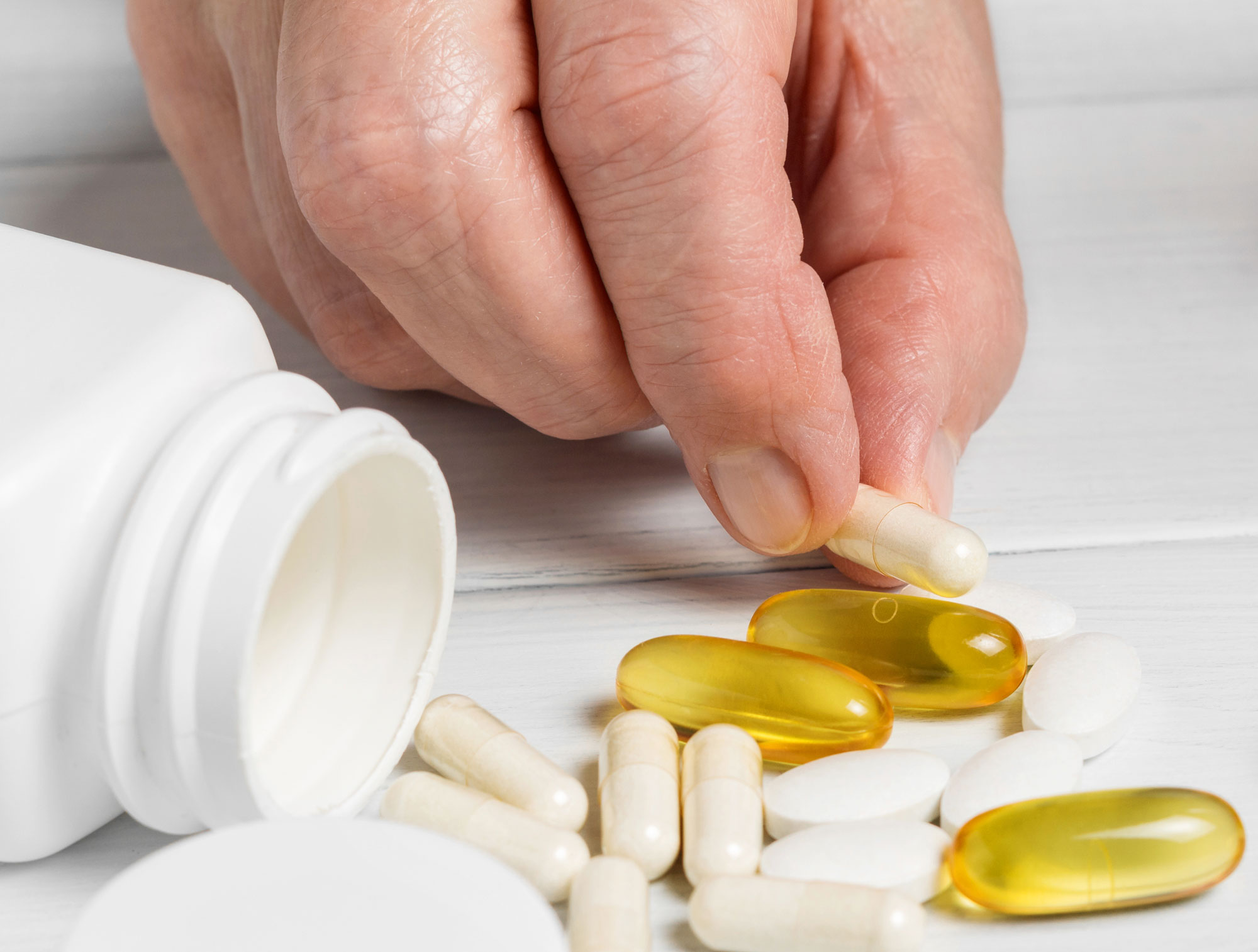Get Easy Health Digest™ in your inbox and don’t miss a thing when you subscribe today. Plus, get the free bonus report, Mother Nature’s Tips, Tricks and Remedies for Cholesterol, Blood Pressure & Blood Sugar as my way of saying welcome to the community!
This supplement is the missing link to fight arthritis

The prevalence of arthritis has increased far more than previously estimated…
Fifty-five percent of men and 68 percent of women aged 65 years and older have at least one form of arthritis according to the 2015 National Health Interview Survey (NHIS).
In fact, surgeries such as total knee replacement have outpaced obesity rates in recent years (implicating something other than obesity as the major contributor here) and there is a rising rate of arthritis in younger people.
If you search online for the causes of arthritis you will find the usual proposed causes: previous injury, genetics (osteoarthritis), autoimmune dysfunction such as lupus or rheumatoid arthritis, and infection (Lyme disease).
But what you won’t find is a word about the one nutritional deficiency that contributes to poor bone health and arthritis more than any other…
I’m talking about your boron deficiency.
Important boron and bone health facts
Scientists have known for years that boron is required for healthy bones and that boron deficiency results in a marked reduction in osteogenesis (bone formation), and bone healing.
It works with our natural steroid hormones to help prevent calcium loss and bone demineralization. It reduces the urinary secretion of calcium and magnesium. So you can see how even if you are taking other bone-boosting supplements, they could do little good without boron.
That’s because boron is the missing link…
Furthermore, since 1963, evidence has suggested that boron is an effective and safe treatment for arthritis. Boron supplementation alleviated arthritic pain by clinician observations as well as epidemiologic and controlled human experiments. For example:
- Lower boron concentrations are found in bones and synovial (joint) fluid in people with arthritis compared to controls;
- Patients using boron supplements have bones that are much harder to cut compared to controls;
- In areas of the world where boron intake is 1 mg/day or less we find arthritis incidence from 20 to 70 percent. Compare this to areas where boron intake ranges from 3 to 10 mg/day and where the arthritis prevalence is 0 to 10 percent.
In light of the high arthritis rates in the U.S. referenced above, you should know that the average daily boron intake from water and food in the states is only 2-3 mg per day.
According to Jorge Flechas, M.D., the intake of boron in America is far too low for adequate bone health, and government recommendations are far too low — on the order of 10 times too low! Compare this to people born and raised in the Palestinian cities Jericho and Cyprus, says Dr. Flechas, where boron is abundant in the soil and where arthritis rates are less than 0.5 percent.
He also states that in Jamaica there is zero boron in the soil, and the rate of arthritis of all categories is as high as 70 percent in some areas; Israelis consume 10-30 mg/day of boron (from diet), and people in Western Turkey consume 30-60 mg/day of boron (from water). A study from Turkey shows 58 mg/day of boron intake causes no adverse effects.
Low soil and plant content for boron in the U.S.
You would think that diets rich in fruits, vegetables, nuts, and pulses should provide us with a high enough boron intake, and therefore prevent arthritis, but apparently not.
As I see it, you simply cannot eat enough of in the U.S. to get enough boron to prevent arthritis or treat osteoporosis. Here’s how we know…
A research group in 1999 developed a nutrient database of 1,944 individual foods, representing 95.3 percent (by weight) of the foods consumed in U.S. at the time. From this database and a 3-day food record of 11,009 respondents, they determined the average daily boron intake.
They found the 95th percentile of boron intake was only 2.42 mg/day for men and 2.74 mg/day for vegetarian men; and 4.18 mg/day for vegetarian women. The top 2 food boron contributors were coffee and milk, which were low in boron themselves, yet made up 12 percent of the total boron intake because of the volume consumed. Among the top 50 boron contributors, peanut butter, wine, raisins, peanuts, and other nuts were highest in boron.
Therefore, I am now recommending a daily dietary boron supplement of 20 mg/day for overall health, and 50 mg/day of boron to reverse arthritis or osteoporosis. Please don’t worry about getting too much: the known toxic daily dose of boron is 15,000-20,000 mg/day.
Editor’s note: Did you know that when you take your body from acid to alkaline you can boost your energy, lose weight, soothe digestion, avoid illness and achieve wellness? Click here to discover The Alkaline Secret to Ultimate Vitality and revive your life today!
Sources:
- US Arthritis Prevalence Is Much Higher than Current Estimates — John Wiley & Sons
- Pizzorno L. Nothing Boring About Boron — Integr Med (Encinitas). 2015 Aug;14(4):35-48. Review. PubMed PMID: 26770156; PubMed Central PMCID: PMC4712861.
- Newnham RE. Essentiality of boron for healthy bones and joints — Environ Health Perspect. 1994 Nov;102 Suppl 7:83-5. PubMed PMID: 7889887.
- Boron and Oral Health — IAOMT – International Academy of Oral Medicine and Toxicology
- Rainey CJ, Nyquist LA, Christensen RE, Strong PL, Culver BD, Coughlin JR. Daily boron intake from the American diet — J Am Diet Assoc. 1999 Mar;99(3):335-40. Review. PubMed PMID: 10076586.













